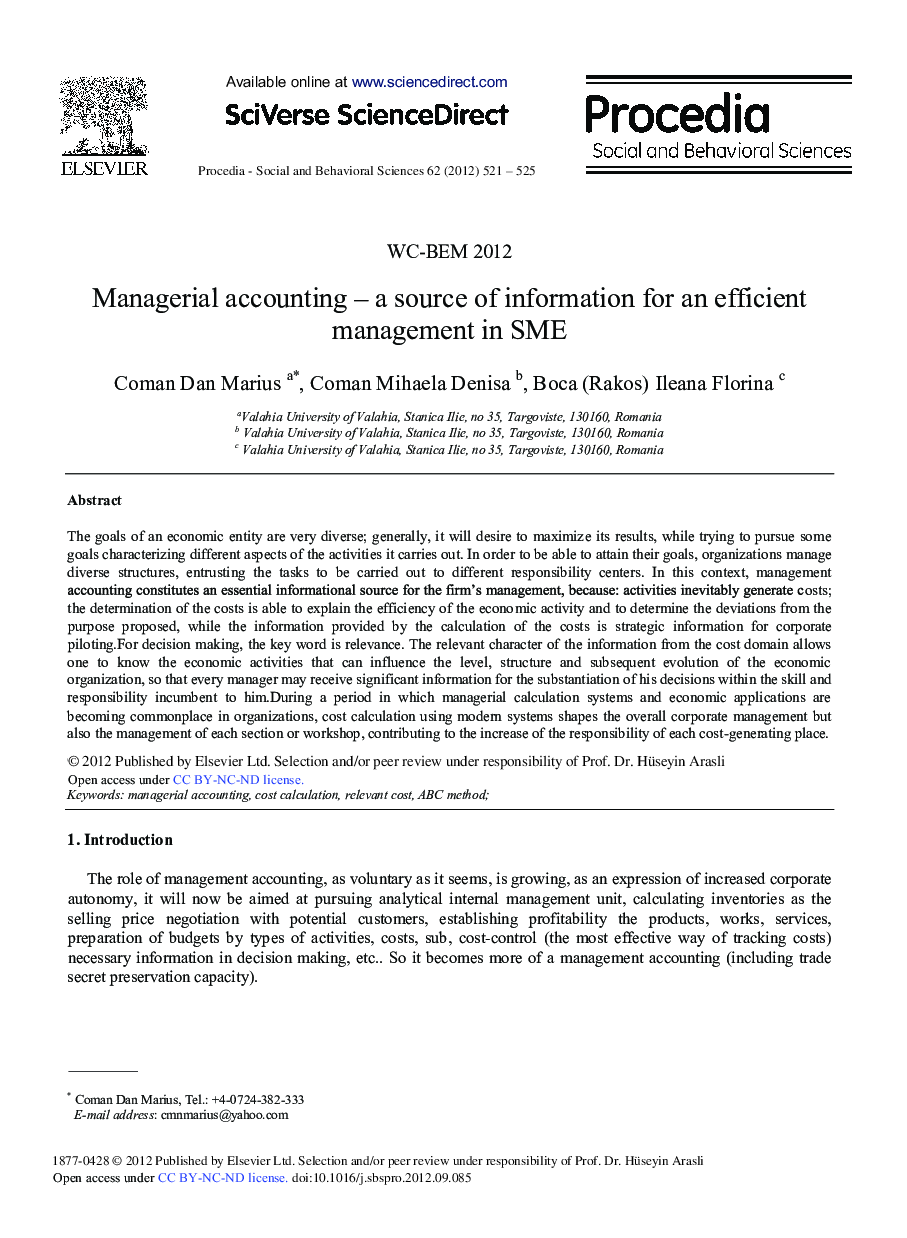| Article ID | Journal | Published Year | Pages | File Type |
|---|---|---|---|---|
| 1120387 | Procedia - Social and Behavioral Sciences | 2012 | 5 Pages |
The goals of an economic entity are very diverse; generally, it will desire to maximize its results, while trying to pursue some goals characterizing different aspects of the activities it carries out. In order to be able to attain their goals, organizations manage diverse structures, entrusting the tasks to be carried out to different responsibility centers. In this context, management accounting constitutes an essential informational source for the firm's management, because: activities inevitably generate costs; the determination of the costs is able to explain the efficiency of the economic activity and to determine the deviations from the purpose proposed, while the information provided by the calculation of the costs is strategic information for corporate piloting.For decision making, the key word is relevance. The relevant character of the information from the cost domain allows one to know the economic activities that can influence the level, structure and subsequent evolution of the economic organization, so that every manager may receive significant information for the substantiation of his decisions within the skill and responsibility incumbent to him.During a period in which managerial calculation systems and economic applications are becoming commonplace in organizations, cost calculation using modern systems shapes the overall corporate management but also the management of each section or workshop, contributing to the increase of the responsibility of each cost-generating place.
